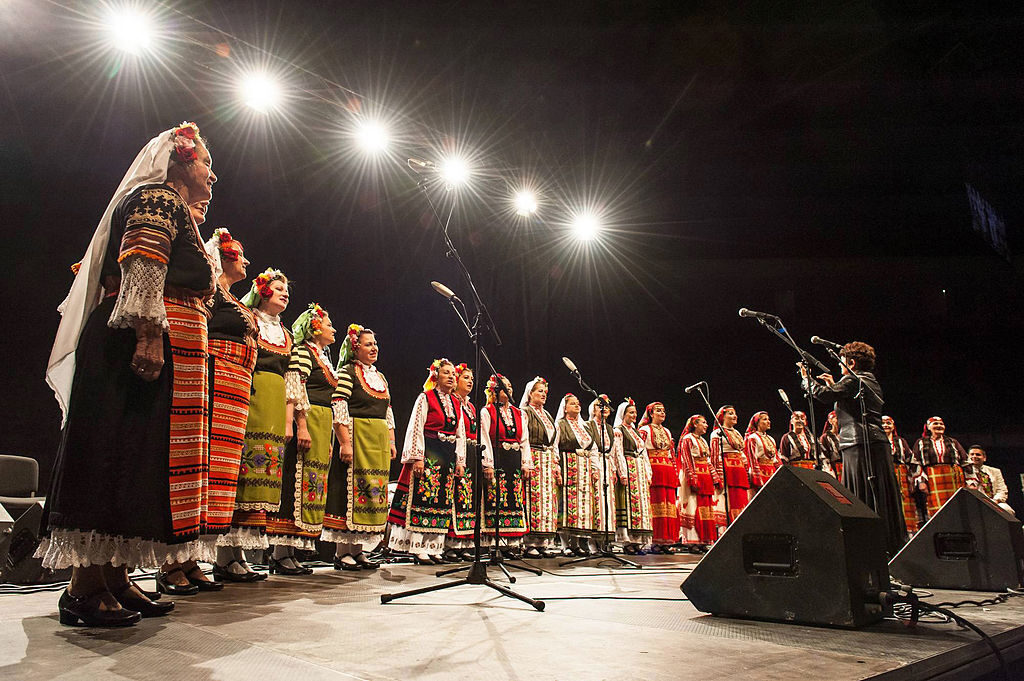DIVERSITY OF BULGARIAN FOLK SONGS
Preslav Folk Songs
To the north and east, singing in unison dominates, unlike in the west and southwest where we sing in two groups that respond to each other or in a polyphonic group. But throughout Bulgaria, singing is almost always collective and mainly female. It can be a cappella or accompanied by traditional instruments or even an accordion. These traditional songs deal with various themes that can be funny or dramatic.
Under the yoke of the Ottomans, the Bulgarian people had only the song as a means of expression, it was during this period that many popular songs were created.
The large region of Bulgarian polyphonic songs (“dvouglas”) is located in the southwest of the country. They owe their specificities to their synoptic rhythms, their drones, crosstalk, and vibrato.
South-Western region, called «Pirinska Makedonia». The folk song in this region is very varied because there have been large relocations and resettlements here. Among the most loved songs are the ones about the harvest and the “sedeshki” songs, which are related to the gatherings and the banters among the youth.
Rhodopian region. The song is sound, voluminous, wide, caressing. Lyrical single-voice melodies predominate. Very popular are the love songs, the songs for gurbet (gurbet means going abroad to make a lot of money), the shepherd songs, reflecting the main livelihood of the Rhodopean.
The Thracian region is characterized by one-of-a-kind singing, with ornate choir songs or slow, no-metrum songs. In the Thracian field live hardworking and beautiful people. Thracian folk music is beautiful and expressive. Rich and varied is her musical folklore. The Thracian folklore area is the most extensive of all areas. It also includes an interesting, specific sub-region – the Strandzha region. Strandzha’s song is masterful – hard to perform. There is another unique Bulgarian fortune in the Strandzha Mountain – the fire-dancing games.
Dobrudzha region. There are richly ornamented songs about harvesting the grain
Northern region. The musical folklore of this area is a mixture of the folklore of the other regions, due to the relocation of large groups of Bulgarians before the Liberation to the mountains and around them, and along the way back to the field, large groups of settlers from Thrace left together with the local population.
Shoppska region. The song tradition of the Shoppski region has two distinctive forms: the two-voice singing and the epic recitative. The songs have a narrow tonnage that is a sign of antiquity.


